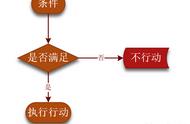
if与whether的用法
相同点:都可用来引导宾语从句,意为“是否”,常放在动词ask, see, say, know和find out等后面,在一般情况下可以互换。if多用于口语和非正式言语文体中,whether多用于比较正式的文体中。
不同点:
一、在下列情况下只能用whether,不能用if:
1. 在带to的不定式前只能用whether。如:
I can’t decide whether to stay. 我不能决定是否留下。
2. 直接与or not连用时whether不可换为if。如:
I want to know whether or not it’s good news. 我想知道它是否是好消息。
I’m not sure whether or not his answer is right. 我不能确定他的答案是否是正确的。
3. 在介词后,只能用whether。如:
His father is worried about whether he will lose his work. 他的父亲担心是否会失去工作。
I’m thinking of whether we should go to see the film. 我在考虑我们是否去看电影。
4. 宾语从句提前时,只能用whether。如:
Whether the news is true or not, I don’t mind. 这个消息真实与否,我并不介意。
5. 在句首引导主语从句或表语从句时,只能用whether。如:
Whether he’ll come to see us is not important. 他是否会来看我们并不重要。
Whether they can finish the work on time is still a problem. 他们是否能准时完成这项工作还是个问题。
The problem is whether he can carry these apples to the top of the hill. 问题是是否他能把这些苹果搬运到山顶。
6. 在动词discuss后面的宾语从句中,只能用whether。如:
We’re discussing whether we should hold a sports meeting next week. 我们在讨论是否下周我们应该举行运动会。
7. 用if会引起歧义时,只用whether。如:
Could you tell me if you know the answer?
这句话有两种意思:“你能告诉我是否知道答案吗?”或“如果你知道答案,请告诉我,好吗?”如想表达的是第一个意思,只能用whether,这样可避免歧义。
二、在下面三种情况下用if,不用whether:
1. 引导条件状语从句,意为“如果”时。如:
We will go on a picnic if it is sunny tomorrow. 如果明天天气好,我们会进行一次野餐。
2. 引导否定概念的宾语从句时一般用if。如:
He asked if I didn’t come to school yesterday. 他问我昨天是不是没有来上学。
3. 引导状语从句even if(即使)和as if(好像)中的if,不能用whether来替代。如:
I’ll send for you even if you don’t come. 即使你不来,我也会派人去请你。
He talks a lot as if he has known all about it. 他谈了很多,好像他已经知道了关于它的一切。
,













